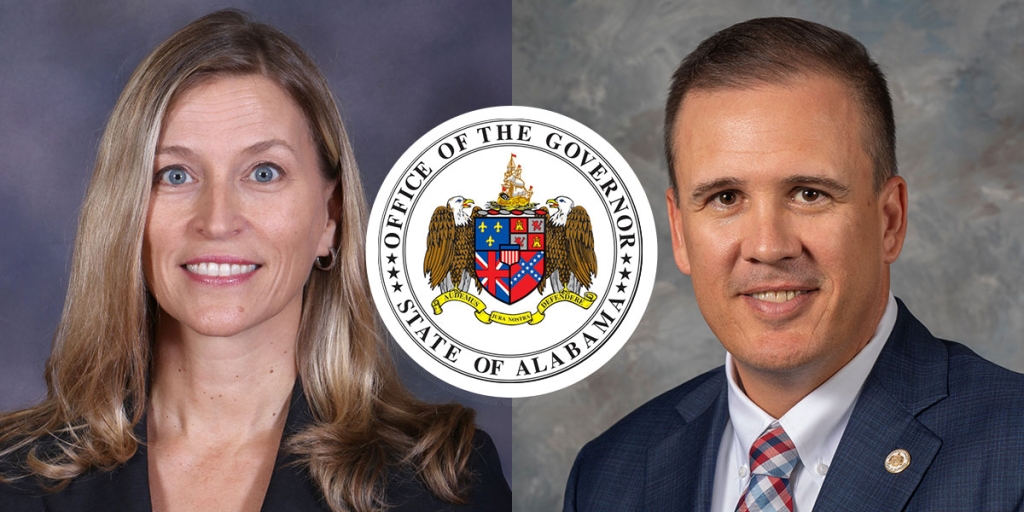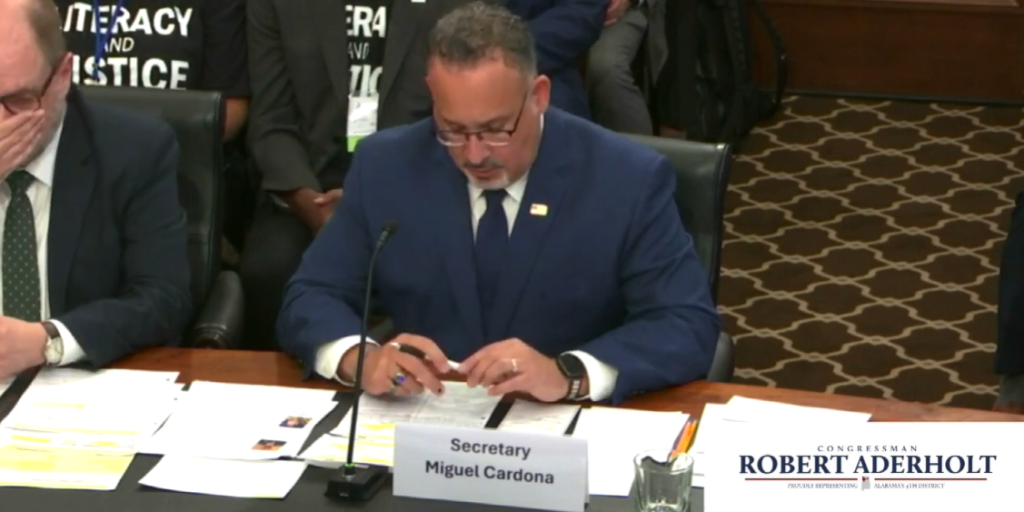MONTGOMERY — During debate on the Alabama Senate floor on Tuesday evening, State Senator Vivian Davis-Figures (D-Mobile) expressed her frustration at the United States military.
The Senate was considering a package of bills related to making Alabama, as Lt. Governor Will Ainsworth has declared as his goal, “the most military-friendly state in the country.”
However, Figures at the end of the legislative “Military Friendliness Day” did not seem to be feeling the love.
The two specific bills that drew ire from the Democratic side of the aisle, not just Figures individually, related to education.
First, SB 106 by State Sen. Will Barfoot (R-Pike Road) would authorize the formation of public charter schools on or within one mile of military installations with a focus on serving military and certain Department of Defense dependents. That bill as amended was ultimately passed by the Senate on a 26-3 vote after it was initially carried over due to being slowed down by Senate Democrats on the floor. Figures voted against the bill.
Barfoot on the floor — and in brief remarks to Yellowhammer News after the Senate adjourned later in the evening — explained that the genesis of his bill is tied to comments made in recent years by U.S. Air Force Lt. General Anthony Cotton, who was at the time the commander of Air University at Maxwell Air Force Base in Montgomery.
Montgomery Public Schools has been taken over by the state (via an intervention) as a failing system, and military families are very much affected by the quality of the system.
Here is what U.S. News wrote in August:
The impact of failing schools isn’t limited to the local community. Leadership at Maxwell Air Force Base in Montgomery has voiced concerns that poorly performing public schools have made it harder to get military personnel and their families to want to come here.
About 56% of airmen coming to Maxwell for Air War College, a professional military school for senior officers, choose to leave their families behind rather than move them to Montgomery, said Lt. Gen. Anthony Cotton, commander of Air University at Maxwell Air Force Base, during a community gathering to discuss education in 2018. Schools were cited as the top reason for separation, Cotton has said.
Barfoot also added that a lack in availability of quality, affordable education is an issue that Base Realignment and Closure (BRAC) commissions look at when evaluating facilities.
With all that in mind, another related bill followed the passage of SB 106 on the Senate floor.
SB 143 by State Sen. Donnie Chesteen (R-Geneva) would provide that for the purposes of enrolling in and attending a virtual school operating in Alabama, the dependents of a member of the U.S. Armed Forces shall be considered residents of the state upon the respective member receiving orders to relocate to the state. Under existing law, local boards of education are already required to provide a virtual education option for eligible students in grades 9-12. Essentially, this bill would just expedite the process by which military dependents could enroll in these existing virtual schools after their family was ordered to locate to Alabama.
Figures initially delayed the passage of this legislation, causing it to be carried over. However, at the end of the legislative day, the bill was brought back up. She remarked that the only reason she was not continuing to slow it down was because of her respect for Chesteen.
Nevertheless, Figures then turned her attention to the basis of the bills: that military dependents need better public education options in Alabama.
“I am very offended by the military,” the state senator decried.
She expressed that she was insulted that BRAC/military leadership would believe there are Alabama public schools not “good enough” for military dependents. Figures further lamented that, in her view, the military thinks their dependents are “too good” to go to school with civilian children at Alabama public schools.
After that, Figures voted in favor of SB 143. The bill passed 30-0. Both SB 106 and SB 143 now head to the House for a first reading.
In an interview with Yellowhammer News after adjournment, Figures affirmed her comments.
“I really think I said all I needed to say at the microphone about the passage of these bills, or the introduction of those bills that made it perfectly clear that our public school education is not ‘good enough,’” she said. “So, rather than us pay the price to establish charter schools just for them — that is a federal level of government, the Armed Forces — so if that’s the way they feel, why don’t they build their own school without continuing to further deplete the Education Trust Fund of Alabama, which is supposed to be intended for public schools.”
It should be noted that charter schools are public schools. Virtual school programs related to SB 143 are also governed by public school systems.
Sean Ross is the editor of Yellowhammer News. You can follow him on Twitter @sean_yhn













